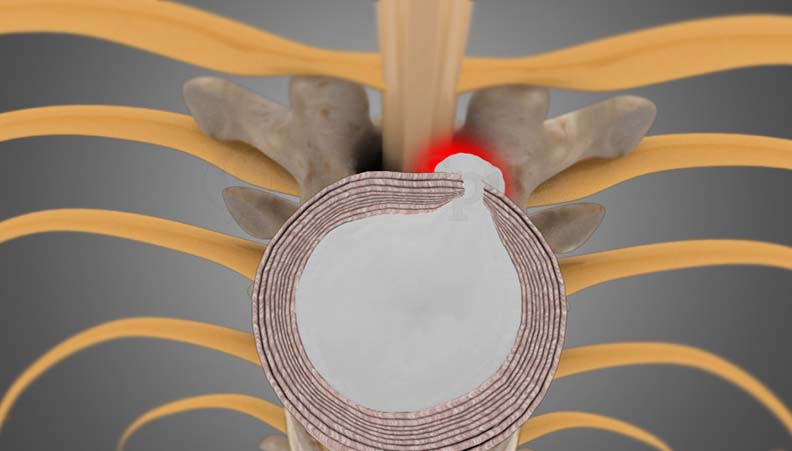Thoracic Disc Herniation/Radiculopathy
Few people with a thoracic disc herniation feel any symptoms or have any problems as a result of this condition. In rare cases when symptoms do arise, the main concern is whether the herniated disc is affecting the spinal cord.
A herniated disc happens when the material in the center of the disc has squeezed out of the normal space. In the thoracic spine, this condition mostly affects people between 40 and 60 years old.
The upper half of the thoracic spine is much less mobile than the lower section, making disc herniations in the upper thoracic spine rare.
Symptoms of thoracic disc herniation vary widely. Symptoms depend on where, and how big the disc herniation is, where it is pressing, and whether the spinal cord has been damaged. If it is pressing on one side or the other, the symptoms are pain, numbness or weakness on that side and often around the back and into the chest area. This is called Thoracic Radiculopathy. If it herniates straight back into the spinal cord, paralysis of the lower extremities, weakness or bowel and bladder changes are noted. This is called Myelopathy.
If symptoms are spinal cord related, a surgical consult is recommended. Otherwise most thoracic herniations gradually get better with conservative care.
Last modified: October 22, 2019






